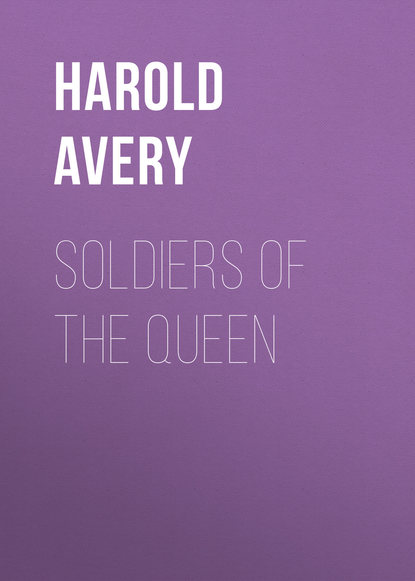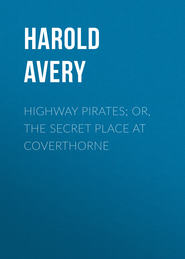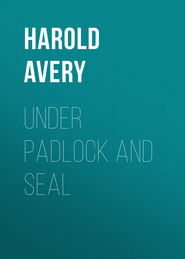По всем вопросам обращайтесь на: info@litportal.ru
(©) 2003-2024.
✖
Soldiers of the Queen
Настройки чтения
Размер шрифта
Высота строк
Поля
"Oh, no, you wouldn't. What d'you think Queen Mab would say when she heard about it?"
"But she wouldn't hear about it," returned the other, with a touch of his restless discontent. "No one would hear about it. I should call myself Jones, or something of that sort. It would be a happier life than that I live at home; and what the guv'nor thinks he's going to do with me, I'm sure I don't know."
Valentine certainly did his best to follow out his sister's instructions, and keep Master Jack out of hot water. The latter seemed to have become a trifle more tractable; perhaps, finding other people were interested in him, he was led to take more interest in himself. At all events, his conduct underwent a considerable change for the better, and his name no longer appeared on every page of the defaulters' book.
Football was now on, a sport which he specially enjoyed. In addition to this, Garston and Teal had left, and Rosher, who had now joined the Fifth, seemed to be increasing in wisdom as well as in stature, and no longer sought the bubble reputation in official visits to the headmaster's study. In short, Jack had improved with his surroundings. He and Valentine, in addition to their fretwork, had taken up carpentry; and on wet afternoons, when idle hands were steeped in mischief, they were always to be found in the shed which had been set apart for the boys to use as a sort of workshop. As far as the Fifth Form was concerned, only one incident happened to relieve the monotony of a somewhat uneventful term; and as one of our heroes was largely responsible for what took place, an account of the episode may as well be included in our story.
Jack, it should be said, was not to blame for what happened in the first place, his and Preston's share in the business was, as it were, only the effect arising from a primary cause; and for this, the real root of the matter, Tinkleby was solely responsible.
"Look here," said Tinkleby, "those fellows in the Sixth are running that debating show of theirs, and they get let off 'prep.' every Saturday night; wherefore I vote we join."
"They wouldn't have us," answered Dorris; "they won't allow any one to join if they are lower in the school than Sixth or Remove."
"Ah!" answered Tinkleby, adjusting his nippers, "but, don't you see, I should do it in this way – I should propose that our society be amalgamated with theirs."
"What society?" asked Preston the bowler.
"Why, the Fifth Form Literary Society, you blockhead!"
Preston and Dorris both exploded.
"You seem to think," continued Tinkleby, with a cynical smile, "that the only use for our society is to provide us with an excuse for having a feed once a year at 'Duster's;' but let me remind you, sir, that its main object, according to the original rules, was the cultivation of a taste for literary pursuits among its members."
"Yes," added Dorris, "and so you want to get off Saturday 'prep.' Fire away, Tinky, I'm with you."
That very afternoon Tinkleby addressed a large, square envelope to
S. R. HENINGSON, Esq.,Hon. Sec. Melchester School Debating Society.
and having sealed it with an old military button, dropped it into the letter-box, a proceeding more in keeping with the importance of the communication than if he had delivered it by hand. The honorary secretary went one higher – he sent his reply by post. It was polite, and to the point. The committee of the debating society did not see their way to extend the limit of the rule relating to membership. They would be pleased to admit any of the Fifth Form who could obtain permission to attend the meetings, but they would not be entitled to vote, or to take any active part in the proceedings.
Tinkleby was incensed at this cool reception of his proposal, and harangued his comrades during a temporary absence of Mr. Ward from the classroom.
"They think such a confounded lot of themselves, with their miserable essays and dry debates. I'll bet we could stand up and spout as well as they can, on any subject you like to mention, from cribbing to astronomy."
"Of course we could," answered Boswell-Jones, who had prepared a paper entitled, "An Hour with the Poets," into which he had introduced all his favourite recitations, and which he longed to fire off at something in the shape of an audience – "of course we could; it's all that conceited beast Heningson. He thinks he's an orator – great ass!"
"Well, look here," said Tinkleby, fixing his nippers with an air of resolution and defiance, "Heningson's going to open a debate next Saturday. The subject is: 'That this house is of opinion that the moral and physical condition of mankind is in a state of retrogression.' We'll go and hear it. Ward'll let us do our 'prep.' in the afternoon. I've got a little plan in my head, and we'll take a rise out of these gentlemen."
The Melchester School Debating Society, as we have already mentioned, was established for the benefit of the senior boys, who held their meetings every Saturday night during the winter and Easter terms in what was known as the drawing classroom. It was conducted in a very solemn and serious manner. Redbrook, the head of the school, took the chair; while on the table before him, as a sign of his office and authority, a small hand-bell was placed, which he was supposed to ring when, in the heat and excitement of debate, members so far forgot themselves as to need a gentle reminder of the rule relating to silence. As a matter of fact, the chairman seldom, if ever, had any need to use this instrument, though on one occasion some wag removed it before the proceedings commenced, and substituted in its place the huge railway-bell used by Mullins, the school-porter; a jest which greatly incensed the grave and dignified assembly on whom it was practised. There was a proper mahogany ballot-box. The subjects for discussion always began, "That this house, etc.," and the secretary entered in a book exhaustive minutes of every meeting, which the chairman signed with a quill pen. These details are given in order that the reader may understand the character of the society in question, and be therefore in a better position to pass judgment on the outrageous behaviour of certain gentlemen whose conduct will shortly be described.
On the following Saturday evening, in answer to the formal invitation which they had received, Tinkleby and his friends filed into the room, looking very good and demure, and occupied the desk against the end wall, which they entered as though it had been a pew in church. The usual preliminaries were gone through, and the chairman called on "our worthy friend the secretary" to open the debate by moving, "That this house is of opinion that the moral and physical condition of mankind is in a state of retrogression."
For a time all went well. The visitors sat as mute as mummies, and the opener sought to justify his proposition by launching out into an impassioned discourse, which seemed rather inclined to resolve itself into a brief history of the world, and which the critical Tinkleby afterwards described as containing "more wind than argument." Touching briefly on the statements of the Hebrew chroniclers, Heningson proceeded with a wordy exposition of the manners and customs of ancient Greece, and from this stumbled rather abruptly into the rise of the Roman empire. Drawing a fancy and perhaps rather flattering portrait of one of the world-conquering legionaries, the speaker thought fit to compare it with that of a latter-day Italian organ-grinder who often visited the school, and who had recently been had up for being drunk and disorderly in the streets of Melchester.
"Gentlemen," exclaimed the orator earnestly, pointing accidentally at the chairman, but meaning to indicate the unfortunate musician, "is this the culmination of a race of gods? this inebriate, undersized – "
At this point the discourse was suddenly interrupted by a loud and prolonged snore. Heningson hesitated, and glanced up from his notes with a look of annoyance. He was about to proceed when a chorus of snores in every imaginable pitch and key effectively checked his utterance. With an indignant "Sh – s-h!" the audience turned in their seats to witness the following astonishing spectacle. At the back of the room every one of the half-dozen visitors sat, or rather sprawled, with his head upon the desk, in an attitude suggestive of the soundest slumber; the only variation in position being on the part of Jack Fenleigh, who lay back with a handkerchief thrown over his face like an old gentleman taking his after-dinner nap. The nasal concert continued, and the chairman smote his hand-bell.
"Firs' bell," murmured Tinkleby drowsily, "stop working;" while Dorris became suddenly afflicted with a catch in his breath which caused a succession of terrific snorts, each of which nearly cracked the windows.
"Here, stop that noise!" cried Redbrook, springing to his feet in great wrath. "Wake 'em up, somebody!"
An obliging member caught Tinkleby by the arm, and gave him a prodigious shake.
"Shur up," growled that gentleman. "Give me back my pillow, 'tisn't time to ger up. Hallo! have I been asleep? I'm beastly sorry."
One by one the other occupants of the visitors' gallery were made to understand that they were not in their beds. Jack Fenleigh, however, absolutely refused to return from the land of dreams. He was shaken, pinched, and pommelled, but all to no purpose; his snores only became louder, and the style more fantastic.
Meanwhile a heated altercation was going on between the chairman and the president of the Fifth Form Literary Society.
"Look here, Tinkleby, we don't want any more of your silly foolery, so just stop it."
"My dear sir, I'm doing nothing."
"Well, why did you begin?"
"If you mean my having dropped off to sleep, I'm very sorry; but really there's something in the air of the place – "
"Haw-r-r-r-r-ratch," interposed Jack Fenleigh. Redbrook rose from his chair, boiling with wrath.
"Just clear out!" he cried. "Go on – all the lot of you!" The visitors demurred, but being outnumbered three to one, they were seized and hustled unceremoniously out of the room. In the midst of all this commotion, however, Fenleigh J., still continued in an unbroken slumber, and was distinctly heard snoring louder than ever as his companions dragged him off down the passage.
For the time being this little joke gave rise to a rather strained relationship between the members of the Sixth and Fifth Forms. Tinkleby and his comrades were designated a set of rowdy jackasses; and they replied to the compliment by declaring that a fraternity of live donkeys was better than a collection of stuffed owls, and advising Heningson to patent his discourse as an infallible cure for insomnia. Cutting allusions to the "Literary Society" and sarcastic retorts were exchanged in the corridors and playing-field; and so the feud continued.
All his classmates were charmed with Jack's share in the performance.
"You wait," was his invariable answer to their congratulations; "I'll take a better rise out of them before long."
For a time this boast was not considered to imply any definite intention on the speaker's part to play any further pranks on the members of the debating society; but at length a rumour got abroad that something was going to happen. Fenleigh J. and Preston had been seen more than once taking counsel together in out-of-the-way corners, and exchanging mysterious nods and winks. They were known to have spent the free time between "prep." and supper, on two consecutive evenings, alone together in the workshop, with the door locked. A great deal of hammering went on, but no one could find out what they were making. When questioned on the subject, they professed a lamb-like state of innocence; and even Tinkleby himself could give no explanation of their conduct. A fortnight after the delivery of Heningson's essay, the debating society held an important meeting, the announcement of which, posted the previous evening on the notice-board, was worded as follows: —
M. S. D. S
Saturday, November …th
DEBATE
"That this house approves of the settlement of all international disputes by arbitration instead of war,"
Aff., Mr. N. J. CARTER
Neg., Mr. SHEPHERD
The members turned up in force, for this time the openers of the discussion were the two leading lights of the society, and the contest between them was certain to prove an intellectual treat which ought not to be missed. Carter's style of oratory was of the impassioned order; he thumped on the desk, and went through the "extension motions," with the exception of that awful movement where you bend double and try to touch your toes. It was rumoured that he wrote deep, unintelligible poetry that did not rhyme; and if the school rules had not forbidden the practice, he would have worn long hair and a fly-away necktie. Shepherd, on the other hand, went in for logic, unadorned by any movements suggestive of setting-up drill. His style bore a suspicious resemblance to that of Augustus Powler, Esq., M.P. He stuck his thumbs in the armholes of his waistcoat, and pushed forward that portion of his body which it would have been unfair to strike at in a fight. It would be impossible to give here anything like a detailed report of the proceedings. From the moment when the chairman rose to introduce the first speaker, every one felt that the meeting would be one of unusual interest; and in one sense they were certainly destined not to be disappointed. Carter was in great form; he dealt the desk such terrific blows that the ink spurted out of the ink-pots, and ran down on to the secretary's breeches. War, he declared, was legalized murder, and the soldier little better than a hired assassin. Napoleon Bonaparte was far more roughly handled than at Leipsic or Waterloo; and a long list of conquerors, ranging back to Alexander the Great, were, figuratively speaking, torn from their graves and hung in chains. At length, having dwelt on the enormous cost of standing armies, and other more practical aspects of the subject, the speaker concluded with a vivid picture of the horrors of a battlefield, and was in the act of quoting a verse of poetry, when he was suddenly silenced by an unlooked-for interruption.
"The bursting shell, the gateway wrenched asunder,
The rattling musketry, the clashing blade;
And ever and anon, in tones of thunder,







